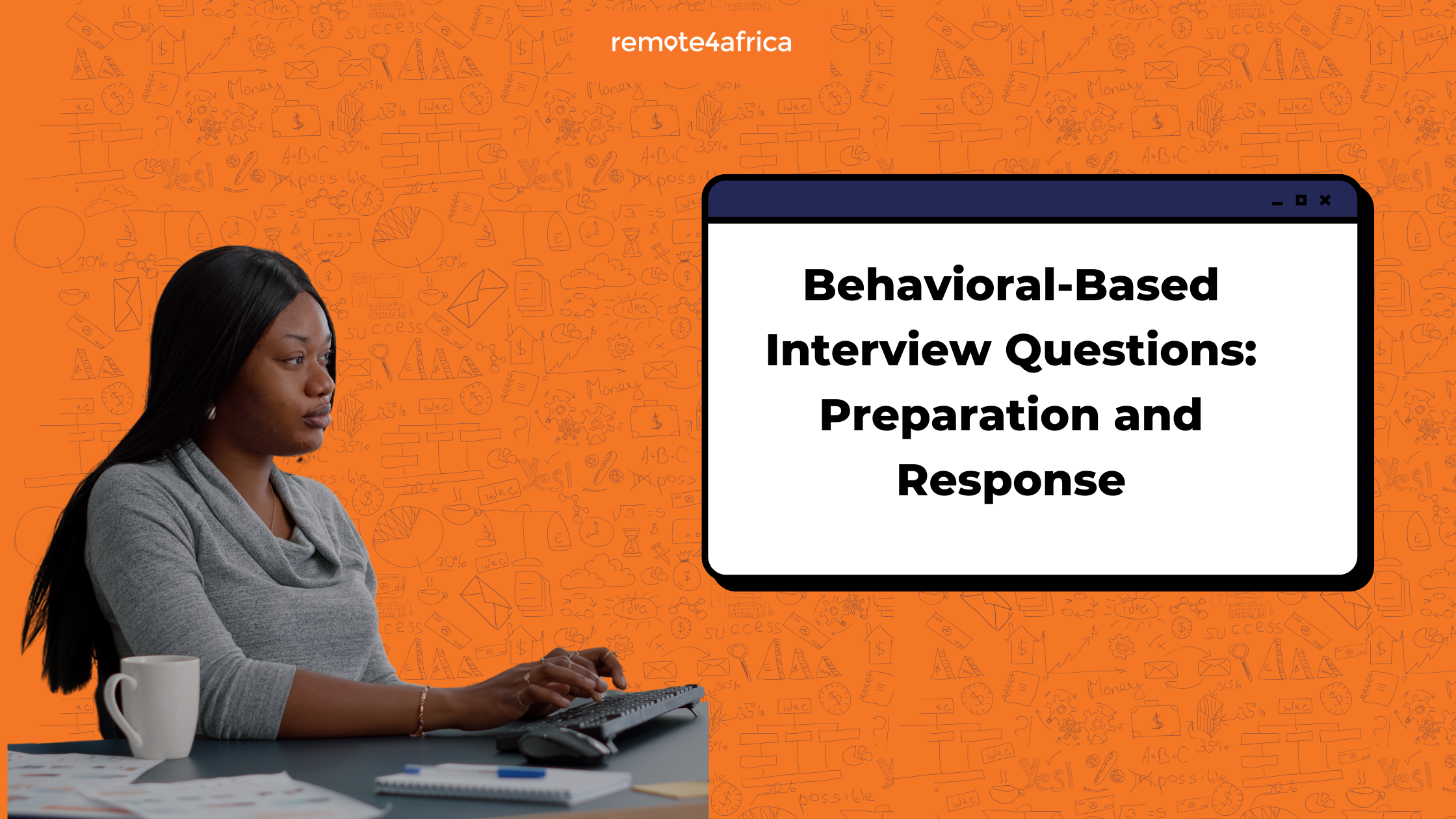Behavioral-Based Interview Questions: Preparation and Response
“How would you react if you were under pressure at work?” is hypothetical; rather, the question should be, “How did you handle a difficult situation at work where you were under a lot of pressure?”

Introduction
A behavioral interview is an interview technique that employers use to assess job candidates based on how they behaved in past work scenarios. It focuses on situations that have happened as opposed to hypothetical situations. The idea behind this is that your previous behavior in certain situations predicts your future actions.
Find remote jobs open for Africans
“How would you react if you were under pressure at work?” is hypothetical; rather, the question should be, “How did you handle a difficult situation at work where you were under a lot of pressure?”
In this article, you will encounter some common behavioral-based questions, how to construct your responses to them, and tips to answer these questions as well.
Common Behavioral-Based Questions
Tell Us About a Time When You Had to Handle a Challenging Situation at Work
How to answer: The interviewers want to see how you cope under pressure. Your response needs to be about a specific incident; explain the context, what you did, and the outcome. Use the opportunity to highlight your problem-solving skills and resilience despite pressure.
What Did You Do in a Situation Where You Had to Work with a Difficult Team Member?
How to answer: The interviewer wants to know how you handle interpersonal issues since conflict is unavoidable in the workplace. Your response should be about how you resolved work-related conflicts, maintained professional relationships, and what you learned from the experience.
Give an Example of a Goal You Set and How You Achieved It
How to answer: Describe how you set the goal, the process you took to reach the goal, and the outcome. You should also include any difficulties you overcame along the way.
Have You Had to Adjust or Adapt to a Significant Change at Work and How Did You Do It?
How to answer: Provide an example of how you approached change and its effects on your work. Place emphasis on your positive attitude and willingness to embrace new challenges in your workplace.
Tell Us About a Time When You Had to Make a Quick Decision Based on Limited Information
How to answer: Share the situation where you had to make a decision on limited information, what factors you based your decisions on, and the outcome of the situation. Your response should reveal your decision-making skills and your ability to function even when you are in doubt.
Tips for Answering Behavioral-Based Questions in an Interview
The STAR Method
This method helps you structure your answers using the Situation, Task, Action, and Result framework. This makes it easier to keep track of all the important points.
Be Specific
Your answers should be detailed and compelling. Giving vague answers won't help at all.
Be Honest
Keep your stories real; use your real experiences that you learned from as they relate to the questions.
Practice
It is important to have practiced your responses beforehand, using examples from your previous workplace. This way, you exude confidence as you speak.
Conclusion
These tips will help you respond to your behavioral-based interview questions. Remember that these questions are intended for the interviewers to know how you have handled realistic, challenging work situations. Your confidence and composure are needed to share these experiences in a believable way. Do all these as advised, and you will impress your interviewers. I wish you all the best in your interview.
FAQs
What is the STAR method in behavioral interviews?
The STAR method stands for Situation, Task, Action, and Result. It helps you structure your responses by outlining the specific situation you faced, the tasks involved, the actions you took, and the results achieved.
How can I be more specific in my answers?
To be specific, focus on particular incidents and details. Describe the context, your exact role, and the outcomes in measurable terms. Avoid general statements and focus on concrete examples.
Why is honesty important in behavioral interviews?
Honesty is crucial because it reflects your integrity and builds trust with the interviewer. Real experiences are more convincing and show your true capabilities and growth areas.
How can I practice for behavioral interviews?
Practice by recalling past work experiences, structuring them using the STAR method, and rehearsing your responses. Consider conducting mock interviews with a friend or mentor for feedback.
What should I do if I can't think of an example during the interview?
If you can't think of an example, take a moment to reflect. It's okay to ask for a moment to gather your thoughts. You can also relate a similar experience or explain your typical approach to such situations.
How can I demonstrate confidence in my responses?
Demonstrate confidence by maintaining eye contact, speaking clearly, and practicing your responses. Being well-prepared with examples and understanding the STAR method will help you articulate your experiences effectively.
